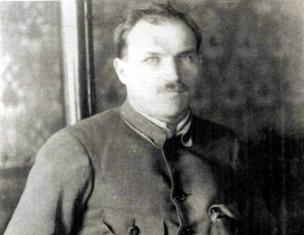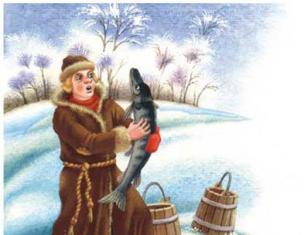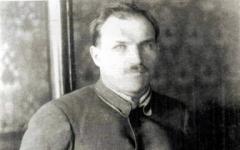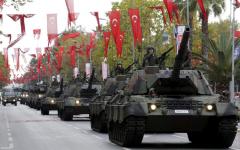The presenter names some part of the body, for example, the head, and touches the hand. Children must follow those commands and touch exactly the part of the body that is named, and not the one touched by the leader. You can name body parts by adding numbers to them.
For example: one, two, three – hand!
2.Simon Says
The presenter says the following phrase: “Simon says: “Stand up (Sit down, Run, Touch your nose, Jump...).” Participants must follow all commands only if they are preceded by the introductory phrase “Simon says.”
3. The Opposite
1 participant pronounces a phrase or word, the other must name and depict the opposite.
Stand up – Sit down.
Stop-Move
Be quiet – Be noisy
Close your eyes – Open your eyes
Smile – Cry
4. Run-Freeze
The presenter says: “Run!” All the children run around until they hear: “Freeze! Animals! Participants must take the pose of any animal. The presenter guesses by asking questions: “Are you a bear....?” Children answer: “Yes, I am / No, I am not.” Such games can also reinforce the themes “Professions”, “Sports Games”, “Musical Instruments”.
5. Sea - Ground
Draw a circle with chalk or place a regular circle on the ground. “Sea” is the center of the circle, “Earth – Ground” is outside the circle. The leader gives the following commands:
- Sea! (Children quickly jump in a circle).
- Ground! (Children jump out of the circle as quickly as possible.)
If there are a lot of children, you can arrange a competition - whoever jumped out of the circle last becomes the leader
5. Movers
We first practice different commands with the children.
Look up, look down, look left, look right,
Clap up, clap down, clap left, clap right,
Turn around and sit down
Touch something...brown!
Then one participant in the game gives commands, and the children carry them out. If someone performs a movement incorrectly, he leaves the game (if large quantities participants).
6. Eatable – Uneatable
The presenter throws a ball to the children, naming inedible or edible objects in English. When the presenter calls something edible, the child tries to catch the ball, and if it’s inedible, throw it away.
7. Hide and Seek
One child stands in a certain place, closes his eyes and slowly begins to say a counting rhyme in English.
Counter:
“Hide and seek” - we play together.
“Hide and seek” - whatever the weather.
1, 2, 3, 4, 5 – I’ll look for you and find
While he is saying the counting rhyme, everyone else is hiding. Then the leader tries to find everyone hiding. Seeing someone, he runs to knock at the place where he said the counting rhyme and says: “Tap, tap on .. Sveta.” while calling the name of the one he saw. If one of the players runs out of his hiding place, then he tries to run to the leader’s place and knock on him, saying: “Tap, tap on me.”
8. Letters or Numbers
Use colored chalk to write numbers or letters. Then you name a number or letter, and the child tries to find and stand on it.
9.Where Is It?
The presenter closes his eyes. Participants hide any object. The presenter opens his eyes and asks: “Where is the...?” They help him find the hidden object, giving clear instructions in English: “The pen is at the bag...”
10. Hot and Cold
You hide any toy or object, and the child looks for it using your clues “cold-cool-warm-hot” (“cold - cool - warm - hot”). When he is very close, say the word hot.
11. Animals and Birds
12. Imitators
You name any animal, bird or profession, and the children try to portray what is named with facial expressions, voice and gestures. Whoever does it better is the winner.
13. Claps
The presenter calls a number from 1 to 5. Depending on which numeral was named, the children must clap their hands the same number of times.
Presenter: “Four!”
Children clap 4 times.
Whoever makes a mistake is punished. For example, jump or dance.
14. Can and can’t
Children listen to the leader’s question, answer it positively or negatively: “Yes, I can. / No, I can’t.” If the answer is positive, perform the above movements.
Can you hop like a fox? No, I can't. The rabbit can hop.
Can you fly like a bird? Yes, I can.
15.Colors
You name a color in English, for example, red. Children must find the named color on their clothes, on the street or in the room, touch it and repeat its name.
16. Bring me
Various things are laid out in the room or outside. The presenter asks the children to bring him some thing, naming it or describing it in English. Whoever finds and brings this item first wins.
Bring me a pencil….
17. Bob, Be Nimble
The child tries to jump over a stick (jump rope), which is at a certain height. If there are a lot of children, then you can arrange a competition to see who can jump over the stick (jump rope) at the highest height. Before jumping over the stick, children recite the following rhyme:
Bob, be nimble,
Bob, be quick,
Bob jump over
My brown stick.
Learning English is a serious matter, but even there is room for creativity and humor. Channel your love of English through the prism of creativity and receive memorable and useful prizes for a long memory. We are always happy to reward the efforts of Anglomaniacs with a worthy reward.
In order to become a participant in the competition English language, you need desire and the completion of a simple task. Fill your work with love and zest and it will certainly not go unnoticed. The English language requires regular attention during the learning process, and in the case of a competition or quiz, it favors the inventive, interesting and goal-oriented.
To get the maximum number of correct answers to the quiz questions, you will need knowledge of grammar, idioms, and words by topic. You can easily find all this on our website or go to English courses in Moscow to add to the knowledge you have already acquired. Participate in our competitions, no feathers, no feathers!
A good knowledge of English for modern schoolchildren is a chance for their brilliant prospects in the future. Therefore, today even in secondary schools they emphasize its study. special meaning and try to ensure that students learn foreign speech as best as possible. This requires constant testing, which is easy to carry out with the help of Olympiads, which our website “Aida” constantly conducts.
Testing a student's knowledge of the English language using Olympiads
The Olympiads on our website are held online and are tests consisting of fifteen multiple-choice questions. Questions can be the most different topics and involve testing your knowledge of the English language down to the very basics. Olympiad participants have the opportunity to choose the most suitable topic and answer questions at any convenient time. The results of a particular English language Olympiad appear immediately after the answer to the last question is given. If the majority of the answers are correct, he is awarded the first, second, third place winner, laureate or participant status.
English language Olympiads for schoolchildren involve the acceptance of works in nominations, which are reviewed by a competent jury within two days after receipt. Then the results are announced to the author of the work. Participation in online Olympiads on our website is free. If they show that the student knows enough English high level, at the request of the manager, he can receive a diploma of the first, second, third degree, a certificate of participation or laureate, which costs 89 rubles. The fee can be paid in any convenient way. Diplomas are issued a few minutes after payment is received. They include the last name, first name, patronymic of the participant in the English Language Olympiad, his teacher, nomination, test results and test date.
Helping English teachers pass certification
The diplomas that schoolchildren receive after participating in Olympiads have an individual number and are a document. Teachers who supervised these students can attach them to their portfolio and present them to the certification commission during advanced training. This will allow you to pass certification faster and achieve assignment to a higher category with an increase in salary. The benefits of such diplomas for English teachers are obvious. They are issued without any problems and can significantly influence the further development of your career.
Vologda regional branch of the all-Russian children's public organization"Public Small Academy Sciences "Intelligence of the Future" invites you to take part in All-Russian creative competition for foreign language .
Conditions for participation in the competition :
1. Can take part in the competition
students in grades 1-11, studying in vocational schools. Only individual works are accepted. Each work will be assessed on a 100-point system according to various criteria, including literacy, originality, creativity, etc.
Laureates of the All-Russian creative competition in a foreign language (English, German, French)
will be participants (for each age group separately) who received the maximum number of points for their work. They will receive laureate diplomas different degrees. All others will receive certificates of participation in the competition. Curators (teachers) of the works of competition participants also receive certificates. Educational institutions and creative groups in which 10 or more people receive the title of Laureate are awarded with special certificates.
Competition results
(diplomas and certificates) will be sent within 15 days after receiving the competitive work (electronic diplomas and certificates by e-mail, paper ones by Russian Post to the address of your educational institution).
2. Works in the following nominations are submitted for the competition :
“Essay in a foreign language”; " Computer presentation in a foreign language"; "Comic in a Foreign Language"; "A Tale in a Foreign Language" .
Topics for essay and computer presentation nominations: “Friends”, “My favorite movie (cartoon)”, “My school ( educational institution)", "My city (village, town, village)", "Pet", "My journey", " Future profession", "My idol", "My hobby", "My favorite book."
For the comic and fairy tale nominations- free topic.
Requirements for the design of works in the categories “Essay in a Foreign Language”, “Fairy Tale in a Foreign Language” and “Comic Book in a Foreign Language”:
— Works are accepted in electronic form in Word, jpg, tif, or pdf document formats.
— Amount of work — from 1 page, but no more than 5 pages, A4 format, font size 14, standard margins.
— The text can be accompanied by drawings, photographs, etc. Illustrations are presented directly in the text of the work in any graphic format. In a word, design is your creativity.
Requirements for the design of works in the category “Computer presentation in a foreign language”:
— The work must be completed in PowerPoint.
— Number of pages – from 10 slides, but not more than 25 slides.
— For each presentation slide, you must prepare a brief written or audio electronic accompaniment.
3. Deadline for submitting works: from September 10, 2018 to August 25, 2019 inclusive
.
4. To participate in the competition you must
Send the following to the organizing committee by email (one participant – one archive folder, which includes 3 documents):
— Completed registration card
(the form is posted on our organization’s website). Indicate the nomination of the competition work on the registration card.
— Completed work
.
— A copy of the financial document on the transfer of the target registration fee
for participating in the competition. The target registration fee for participation in the competition for one participant in one nomination is: 180 rubles with a diploma on electronic media, 280 rubles with a diploma on paper. The quality of the diploma is indicated on the registration card. The target contribution goes to pay for the examination of work, overhead and office expenses. In order to reduce costs (commissions) for transferring registration fees, from one educational institution works can be sent in one email, in an archive and paid in one amount.
Send competition materials to: email
: [email protected]
Contact phone number for inquiries
: 8-921-715-63-80, accepting calls from 8.00 to 21.00 Moscow time.
Bank details for transferring funds
:
Recipient: VRO OOO "MAN "Intelligence of the Future",
INN 3518003782/351801001, account number 40703810900210000015
Recipient bank: PJSC "SGB Bank",
Vologda, BIC 041909786, contract number 30101810800000000786.
Purpose of payment: target registration fee for participation in a foreign language competition (participant's full name in brackets), excluding VAT.
We invite you to actively participate and wish you good luck! Organizing Committee.
English language competition in primary school
Goals and objectives:
create positive motivation for learning English and a joyful mood in the classroom;
repeat and consolidate learned material;
teach children to see the results of collective activity.
Such competitions can be held either at the end of the quarter or academic year, and at the end of any topic studied. For younger students I really like these lessons, they participate in them with pleasure.
At the beginning of the lesson, the whole class is divided into two groups (6-7 people). Students themselves come up with the name of the team (Tom and Jerry, Baby and Carlson, Snow White and the Seven Dwarfs, etc.) The names of the teams are written on the board in two columns and points are entered for each task throughout the competition.
The lesson begins with a greeting and a song:
“Good morning, good morning, good morning to you
Good morning, good morning, I’m glad to see you.”
Phonetic gymnastics: rhyming:
One, one, one - please, dogs, run!
Two, two, two -cats, run, too!
Three, three, three –tigers, run to me!
Four, four, four – monkeys, touch the door!
Five, five, five – please, birds, fly!
Song competition. Children perform a song either of their own choosing or suggested by the teacher.
Poetry competition. Students read poems they have learned throughout the year.
For example:
Fly, little bird, fly, I love my cat,
Fly into the blue sky! It's warm and fat.
One, two, three, My cat is grey,
You are free. It lakes to play.
“Make up a dialogue.” Two representatives from each team make up a dialogue on a given topic, for example, “Getting to know each other”:
Pupil 1: “Hello!”
Pupil 2: “Hi! What is your name?”
Pupil 1: “My name is Sasha. And what is your name?”
Pupil 2: “Nice to meet you, Sasha. My name is Sveta”
Pupil 1: “Nice to meet you, Sveta. How are you?”
Pupil 2: “I’m fine thank you.” And you?”
Pupil 1: “I’m ok, thanks. Good bye, Sasha!”
Pupil 2: “See you late, Sveta!”
Letter competition.
1) “Stand in alphabetical order.” Five people from each team go to the board and receive one letter (one team receives capital letters: A, B, C, D, E; and the other small letters: a, b, c, d, e.) On command: one, two, three! children stand in alphabetical order. The team that finishes first wins.
2) “Find a pair.” There are two columns on the board capital letters in alphabetical order (10 letters), and below are small letters, but in a different order. Both teams line up in a column opposite the board and at the teacher’s command: “begin!” one student from each team runs up to the board, takes a small letter and places it next to the big one. The team that places the letters correctly and quickly wins.
3) “Name and show the letter.” The student approaches the alphabet and shows the letter named by the teacher, and then names the letter shown by the teacher. (10 letters)
Verb repetition competition.
1) Game “Sit!” Children, moving around the chairs, follow the teacher’s commands: go, run, jump, fly, swim, count, sing, dance, write, read draw, etc. At the command: “sit!”, children must sit on chairs. The student left without a chair leaves the game. The team whose last member remains wins.
2) Children follow commands only if the teacher precedes them with the word: “please”. For example, not just: “Run!, a Run, please!” The more attentive team wins.
Number knowledge competition (1-12). The whole team shows the number named by the teacher.
One student from each team goes to the board and shows the number named by the teacher, or calls in English the number pronounced by the teacher in Russian.
Word competition.
1) For example, words on the topic “animals”. The toys are in an opaque bag. The student, guessing by touch which toy he is holding in his hand, says: “I have a cat or It is a dog.” He then shows the toy to the others. He takes out the toy until he makes a mistake. A student from another team does the same. The number of toys matches the number of points.
2) Name as many words as possible on a given topic. (animals, food, clothes, colors, school supplies etc.)
3) “Tic Tac Toe.” A large square is drawn on the board, divided into 16 squares: 4 rows of 4 squares. A picture is attached to each square with a magnet, with the image facing inward. One team is “Tic-Tacs”, and the other is “Toes”. One by one, from each team, the children come up to the board, turn over the picture and say the word. If the child names the picture correctly, he takes it down and the teacher draws a cross or a zero. If the item is named incorrectly, the picture returns to its original place. The team that scores wins greatest number crosses or toes.
4) Competition “Name it from memory”. The teacher shows and says 5-6 words: a dog, a cat, a mouse, a frog, a fox, a bear. The student repeats these words from memory.
“Make a story according to the diagram.” For example: I have a dog. I have no cat. My dog can run and jump. My dog cannot fly. The dog is black. I like my dog.
"Guess the riddle." Each team is given two riddles.
For example:
1) I am red and I have a fine tail, I live in the forest, I like meat. (a fox)
2) I am green I can swim. I cannot jump. I like meat and fish. (a crocodile)
3) I can run. I can climb. I can catch (translation) a mouse. (a cat).
4) I live in the river. I am not fish. I am green. What am I? (a frog).
The total number of points scored is calculated and the winning team is announced, and the work of each student in the lesson is evaluated.
Literature
Negnevitskaya E.I., Nikitenko Z.N. Book for teachers textbook in English for 1st grade educational institutions. - M.: Enlightenment. 1995.
Astafieva M.D. Games for children learning English - M.: “Mosaic-Synthesis”. 2007.
Ilyushkina A.V. Let's learn English fun and easy. - St. Petersburg: Litera Publishing House, 2008.
Nikitenko Z.N. Textbook “Starting to learn English.” M.: Education 2007.







